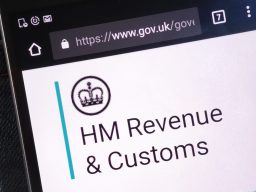



How to Create a PAYE Reference with HMRC and Why It’s Important
about 1 to 2 minutes to read - added in 25/01/2025
How to Create a PAYE Reference with HMRC and Why It Matters for Your Business
Creating a PAYE (Pay As You Earn) reference with HMRC is a crucial step for businesses of all sizes in the UK. Whether you run payroll for a small business or manage a larger enterprise, having a PAYE reference allows you to legally process employee salaries, deduct income tax, and manage National Insurance contributions.
To register, you’ll need to set up as an employer with HMRC. This can be done online through their official portal. Once registered, HMRC will issue you a PAYE reference number, which identifies your business within their system. Without this reference, running payroll or issuing pay stubs is impossible, potentially leading to compliance issues.
At Prime Pay UK, we understand that managing payroll systems, calculating payroll, or even setting up a PAYE reference can seem overwhelming. That’s why our expert payroll services are designed to support businesses at every step, from registering with HMRC to managing biweekly pay schedules and producing payroll check stubs.
By outsourcing your payroll to specialists like us, you can focus on growing your business while we handle the complexities of payroll solutions, including seamless pay stub generation and integration with advanced payroll software.
Investing in proper payroll systems is not just about compliance—it’s about ensuring your employees receive accurate, timely paychecks while your business stays ahead. Contact Prime Pay UK today for the best payroll services for small businesses in the UK.
PrimepayUK




HMRC PAYE Changes 2025–26: Quick Guide for Employers & Employees
about 1 to 2 minutes to read - added in 01/04/2025
As the new tax year begins on 6 April 2025, HMRC has confirmed a few key updates to the PAYE system that every employer and employee should be aware of.
First, the income tax thresholds are staying exactly the same. That means the personal allowance remains at £12,570, and the basic and higher rate bands are unchanged. While this might sound like stability, it could actually result in higher tax bills for some, especially if wages go up and push people into higher bands.
The good news is that National Insurance contributions are dropping again. Employees will now pay just 8%, down from 10% last year. Employers, however, will continue paying the same 13.8%. The Employment Allowance also remains fixed at £5,000, giving small businesses some continued relief.
Most employees will see a tax code of 1257L for the new year. Employers should double-check their payroll software to make sure all codes are updated before running April payroll. It's a small task that can prevent big headaches later.
For those repaying student loans, thresholds are changing slightly too. Plan 1 now starts at £24,990, Plan 2 at £27,295, Plan 4 at £31,395, and postgraduate loans will apply above £21,000. Employers need to ensure they’re using the right plan type for each employee.
Don’t forget those key payroll deadlines either—P60s must be issued by 31 May, and any P11D forms for employee benefits need to be submitted by 6 July.
Staying compliant doesn’t have to be complicated. At Prime Pay UK, we keep it simple and stress-free so you can focus on running your business. Get in touch at info@primepayuk.co.uk
PrimepayUK
©Copyright. All rights reserved.
We need your consent to load the translations
We use a third-party service to translate the website content that may collect data about your activity. Please review the details in the privacy policy and accept the service to view the translations.
